![]()
Wed, Jan 16, 2013 | By Gareth H. Jenkins
This article was first published in the Turkey Analyst, vol. 6 no. 1 (www.turkeyanalyst.org), a biweekly publication of the Central Asia-Caucasus Institute & Silk Road Studies Program Joint Center. © Central Asia-Caucasus Institute & Silk Road Studies Program Joint Center, 2012.
On January 9, 2013, three female Kurdish nationalist activists affiliated with the Kurdistan Workers’ Party (PKK) were assassinated execution-style in the heart of Paris. They included Sakine Cansız, the doyenne of the Kurdish women’s movement and one of the original founders of the PKK. On December 28, 2012, Turkish Prime Minister Recep Tayyip Erdoğan had announced the beginning of a new dialogue with imprisoned PKK leader Abdullah Öcalan to try to put an end to the PKK’s 28 year-old insurgency. The timing of the Paris killings has meant that they have been interpreted as being linked to the dialogue; with Kurdish nationalists and Turkish government supporters each effectively accusing elements within the other of responsibility. Although both sides have called for the dialogue with Öcalan to continue, many Kurdish nationalists have serious doubts about the Turkish government’s sincerity, suspecting that Erdoğan’s main aim is to weaken and marginalize the PKK rather than address the underlying grievances that fuel its insurgency.
Background
In summer 2009, Turkey’s ruling Justice and Development Party (AKP) launched what it termed a “Democratic Opening”, which it portrayed as a process of public consultation and negotiation to address Kurdish grievances and put an end to the PKK insurgency. The process was poorly planned and hastily implemented. In its anxiety to reap the political benefits of putting an end to a conflict that had already cost nearly 40,000 lives, the AKP failed either to prepare the Turkish public or to create a legal framework for any PKK militants who laid down their arms.
On October 19, 2009, eight PKK militants crossed into Turkey from Iraq at the Habur border gate in what AKP officials claimed was the beginning of a process that would result in the entire organization laying down its arms. The eight were feted as conquering heroes by the Kurds of southeast Turkey. The result was a massive Turkish nationalist backlash, including violent public protests. Alarmed, the AKP cancelled the return of any more PKK militants. The eight who had arrived at Habur — who had been promised immunity from prosecution — were all arrested and imprisoned under Turkey’s anti-terrorism laws.
The “Democratic Opening” was abandoned. But the Turkish state continued to hold secret negotiations with the PKK, culminating in face-to-face talks in what became known as the “Oslo Process” after the city in which they were held. While the talks continued, both the PKK and the Turkish security forces scaled back their offensive operations. The Oslo Process was suspended in the run-up to the Turkish general election of 12 June 2011, which the AKP won in a landslide. Over the months that followed, Erdoğan adopted a very hard-line stance on the Kurdish issue, fiercely ruling out any concessions to Kurdish nationalist demands and increasing military operations in southeast Turkey. The PKK responded by stepping up its insurgency, bitterly accusing Erdoğan and the AKP of insincerity.
By early summer 2012, the PKK had begun to believe that Kurdish nationalism was gathering momentum throughout the region. As its relations with the central government in Baghdad continued to deteriorate, the Kurdistan Regional Government (KRG) appeared to be moving closer to creating an independent Kurdish state in northern Iraq. In Syria, the chaos of civil war had resulted in the emergence of de facto autonomous Kurdish regions, including some controlled by the PKK’s Syrian affiliate, the Democratic Union Party (PYD). In July 2012, for the first time in nearly 20 years, the PKK began to supplement its hit and run attacks with attempts to assert its control over territory. Initially, the new policy was successful. However, through September 2012, the Turkish military began to take advantage of the PKK units’ resultant reduced mobility to inflict heavy casualties. Nevertheless, by October 2012, when the first winter snows put an end to the campaigning season, the PKK was looking ahead to 2013 with confidence, convinced that Kurdish nationalism was on the verge of a historic breakthrough.
On 12 September 2012, in an attempt to maintain pressure on the Turkish government through the winter months, a handful of Kurdish nationalist prisoners in Turkish jails went on hunger strike. They were soon joined by others, both inside and outside prison. By mid-November 2012, over 700 people were refusing solid food. Their demands were identical to those of the PKK, namely: full Kurdish language rights, including allowing its use as a medium of instruction in schools; an easing of the isolation of Öcalan on the prison island of İmralı; and the devolution of some of the powers of the central government to local authorities and the establishment of “democratic autonomy” for predominantly Kurdish areas.
On November 17, 2012, the Turkish authorities allowed Öcalan to receive a visit from his younger brother Mehmet. When he returned to the mainland, Mehmet Öcalan announced that his brother had called for an end to the hunger strike. In a demonstration of Öcalan’s iconic status amongst Kurdish nationalists, all of the hunger strikers immediately abandoned their fast.
Implications
The Turkish authorities have held intermittent discussions with Öcalan about ending the PKK insurgency ever since he was first captured in February 1999. On December 28, 2012, Erdoğan went on national television to announce that a new dialogue had been initiated in order to persuade PKK militants to lay down their arms, promising that the Turkish state would not pursue them if they left Turkey and their bases in northern Iraq and moved to another country. On January 1, 2013, Murat Karayılan, the most influential of the PKK commanders in northern Iraq, tartly replied that it was Erdoğan who should be withdrawing his forces from Kurdistan.
On January 3, 2013, the Turkish authorities allowed two Kurdish nationalist members of parliament, Ahmet Türk and Ayla Akat Ata, to visit Öcalan on İmralı. The visit was trumpeted by the Turkish media as a major breakthrough. But, when they returned to the mainland, the two deputies merely reported that Öcalan had told them that he believed that the Kurdish issue should be resolved through democratic means. More critically, AKP officials made it clear that Türk and Akat Ata had been allowed to visit İmralı merely to relay information from Öcalan to the outside world. The Turkish government had no intention of expanding the dialogue with Öcalan to include either the PKK itself or other elements in the Kurdish nationalist movement, such as the Peace and Democracy Party (BDP).
The experiences of Habur and Oslo have left a legacy of distrust. The AKP’s insistence on excluding the PKK and the BDP from the latest dialogue increased suspicions that, after seeing how he halted the hunger strike, the government was now hoping to use Öcalan to persuade the PKK to lay down its arms — and that its aim was thus to weaken the PKK and the broader Kurdish nationalist movement rather than address their demands.
These suspicions intensified after around 100 PKK militants attacked a military outpost in Çukurca, close to the Iraqi border, on January 7, 2013. Such incidents are very unusual in mid-winter. The Turkish media immediately declared that the attack was proof that were divisions in the PKK and that it had been staged by hard-line elements in the organization seeking to sabotage the dialogue with Öcalan. In fact, the attack was a response to the death of Ertem Karabulut, a PKK regional commander and member of the ruling council of its military wing. Karabulut was killed in a firefight in Diyarbakır province on December 31, 2012. As the PKK made clear at the time, the attack in Çukurca was a gesture of defiance and solidarity with Karabulut. AKP officials were aware of this but remained silent and allowed the Turkish media to continue to claim that it was proof that the PKK was divided and opposed to dialogue.
There is still no evidence as to who was responsible for the triple murders in Paris or indeed if they were politically motivated — although the timing and identity of the victims, particularly Cansız, suggests that they may have been. Nevertheless, it is unlikely, as has been suggested by some Kurdish nationalists, that the AKP was directly or indirectly responsible. It would have had little to gain and much to lose, not least because the assassinations took place in the capital of a NATO ally. However, there is little doubt that the AKP has wasted an opportunity to build the trust that is a prerequisite for any permanent peace agreement.

Ömer Güney is accused of the murder of three Kurdish separatists in Paris three weeks ago. The AKP believes that the murder has been provoked by internal rivalries within the Kurdistan Workers’ Party (PKK). But Kurdish leaders said last week that Ömer Güney was not a Kurd, but ethnically Turkish and had no direct connection with the PKK. Kurdish separatists claimed that Mr Guney, who was acting as driver for one of the dead women, might have been a mole working for an extreme Turkish nationalist group. (Photo: Ekurd.net/Hurriyet.com.tr)
On January 10, 2013, Deputy Prime Minister Bülent Arınç issued a statement expressing his sorrow at the killings in Paris and his opposition to extrajudicial executions whoever the victims might be. If his colleagues had echoed his words, it might have been possible for the AKP to convince both the PKK and other members of the Kurdish nationalist movement that the latest dialogue with Öcalan is the beginning of a sincere attempt to resolve the Kurdish issue. Instead, virtually every other AKP official – including Erdoğan – tried to use the killings to discredit the PKK by suggesting they were carried out by elements in the organization opposed to peace in an attempt to sabotage the dialogue with Öcalan. On January 13-14, 2013, Turkish warplanes bombed PKK camps and bases in northern Iraq.
Conclusion
Whoever was responsible, the killings in Paris were an opportunity for the AKP to reach out to Kurdish nationalists. Instead, with the exception of Arınç, the AKP appears to have seen the murders as an opportunity to discredit and weaken the PKK. Any suspicions about the AKP’s motives in engaging with Öcalan will have increased, not diminished, as a result.
The situation is not yet irredeemable. But, if the Turkish government is to convince Kurdish nationalists that it is not trying to use Öcalan — who is effectively a hostage on İmralı — to weaken and divide the Kurdish nationalist movement rather than address its grievances, then it needs to be more transparent about the content of its discussions and to expand the negotiating process. This means including not only the BDP but also the PKK leadership in northern Iraq. The PKK is a vicious, ruthless organization. But it is also the most powerful element in the Kurdish nationalist movement. Whatever the AKP may think of the PKK, it is part of the problem and has to be part of any solution.



 RSS
RSS

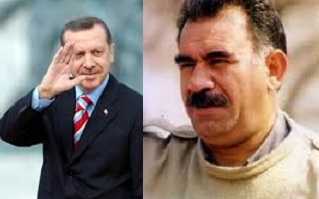
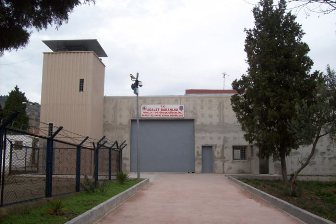



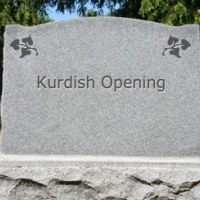
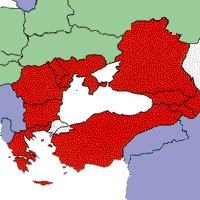
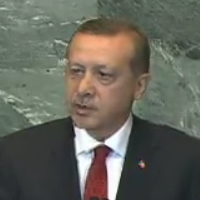




Latest Comments
Hello Mike, Thank you for your positive feedback to the article. I felt there wasn’t too much critical analysis of ...
Thanks for this considered and well constructed article. A follow up article on the manner in which the editorial contro...
THE CLUELESSNESS OF CLAIMING THAT OBAMA'S MIDDLE EAST POLICIES WERE A FAILURE CANNOT BE FURTHER FROM THE TRUTH, WHAT THE...
As long as Obama is the president of the usa do not trust the us government......
Thank you for an good read....